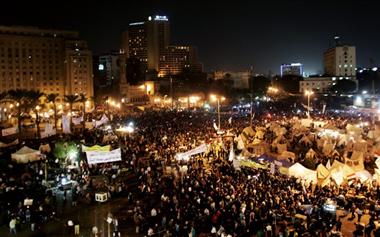
It’s so easy to make blanket statements like: “Morsi is no different than Mubarak” or “A Muslim Brotherhood victory in Egypt means the end of its treaty with Israel” or “Morsi’s influence in brokering the cease-fire between Hamas and Israel proves that a Morsi Egypt is good for Israel.”
But, as you’ll notice, each of these statements contradicts the others, and the events of just the past few weeks support some or all or none of these generalizations, depending on your perspective.
It is in this context that we must consider President Morsi’s recent decision to renege on the sweeping, dictator-like powers that he assigned to himself on November 22. His November decree would have “temporarily elevated his decisions above judicial review.” Citizens have gathered in the streets across Egypt since he announced his new authority, calling for his resignation and for a return to a more democratic system of governance. These protests became so passionate and violent that sources inside the Morsi regime suggested he was close to imposing martial law.
The transition to democracy is never easy and, as Steve Clemons of The Atlantic writes, “Given the conditions of Egypt’s rotten political culture that are turbulent and unstable, it seems ridiculous to think that an Egyptian leader – whether religious or devoutly secular, whether a man or a woman – would automatically and successfully move the Egyptian political architecture into one based on checks and balance statecraft.” But this does not excuse Morsi’s actions, and the values of human rights and freedom should continue to empower Egyptian protestors and world leaders to bring Egypt closer to a fair and true democracy.
In the helpful role President Morsi played in achieving the cease-fire between Israel and Hamas, Egypt modeled for the region a constructive path for the nations emerging out of the “Arab Awakening.” Even more important is the need to show broad support for democracy and human rights.
We will continue to follow the consequences of President Morsi’s power-grab (as we did the elections last year) and will monitor the effect of Egypt’s domestic politics on the safety and security of Israel.
Image courtesy of AP/Maya Alleruzzo
Related Posts

Harnessing the Power of our Mothers Around the Seder Table

Melding Tradition and Innovation: Our Interfaith Toddler Naming Ceremony

